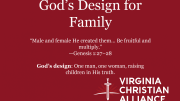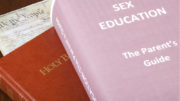Abstract : Some same-sex marriage activists might wish to exclude certain moral and religious viewpoints from the same-sex marriage debate. Evidence shows, however, that religion and moral argumentation are often harnessed in support of same-sex marriage. People of all faiths or no faith at all should be free to participate in the marriage debate and bring moral viewpoints to bear on the issues.
Developments in the same-sex marriage debate have focused new attention on the place of religion and morality in shaping the legal definition of marriage. For example, after voters passed Proposition 8, the California marriage amendment, the Church of Jesus Christ of Latter-day Saints was subjected to heavy criticism and based on its support for the measure. Now, in a federal lawsuit challenging Proposition 8, one issue is whether evidence of religious support for Proposition 8 somehow renders the measure suspect.
Three understandings should form the basis of any discussion about the place of religion and morality in the same-sex marriage debate. First, though some people who defend marriage are personally religious or have religious motivations, support for marriage as the union of husband and wife does not require belief in the religious teachings of any particular faith. Second, many people, including some professional gay-rights activists, enthusiastically mix religion with law and politics in support of same-sex marriage. Third, the question of how marriage should be defined in law raises inescapable moral considerations that should be confronted directly.
Many Arguments for Marriage as the Union of Husband and Wife Are Not Religious in Nature
Some proponents of same-sex marriage have suggested that religion is the primary obstacle to redefining marriage to include homosexual unions. “[R]eligion is the chief obstacle for gay and lesbian political progress,” testifies one expert.[1] Says one activist, “There’s no road to success that doesn’t go through religion-based homophobia.”[2] According to the American Civil Liberties Union, “The primary opposition to same-sex marriage appears to be theologically based—the claim that God doesn’t like it.”[3]
It might be true, of course, that many people who defend marriage are personally religious or act in part from a religious motivation to promote the common good. But support for marriage does not require belief in the religious teachings of any particular faith.
Many arguments for marriage focus on it as a natural, pre-political social institution intrinsically connected to the vital public interest in the begetting and raising of children. “Across history and cultures,” reports marriage scholar David Blankenhorn, “marriage’s single most fundamental idea is that every child needs a mother and a father. Changing marriage to accommodate same-sex couples,” argues Blankenhorn, “would nullify this principle in culture and in law.”[4]
It is precisely the connection between marriage, on the one hand, and the begetting and raising of children, on the other hand, that makes marriage, as the Supreme Court wrote in Loving v. Virginia, “fundamental to our very existence and survival.”[5] This connection is also why race is not relevant to marriage but gender is. With procreation, the most important public purpose of marriage remains uniting men and women in a “formal partnership” that will last through “the prolonged period of dependency of a human child.”[6]
The intergenerational and long-term benefits of marriage to society are profound and irreplaceable. The public has a strong interest in using law and policy to recognize, affirm, support, solidify, encourage, strengthen, and defend marriage as the cornerstone of the family and the building block of society.
To say these arguments for marriage are not religious in nature is not to disparage the important place of faith and morality in public life or the higher law foundation of moral truth. This nation was founded on truths said to be “self-evident, according to ‘the Laws of Nature and Nature’s God,’”[7] and concepts like inalienable rights have meaning only in reference to a higher law that binds even the state. The point is merely that, using the light of reason and evidence from the world around them, people of good will can support the traditional understanding of marriage without accepting the religious teachings of any particular faith.
Religion Harnessed to Support Same-Sex Marriage
If religion is viewed as the primary obstacle to making same-sex marriage a reality in law, it should be no surprise if some activists wish to exclude certain religious viewpoints from the same-sex marriage debate. One activist expressed this view quite plainly in explaining why he sponsored an advertisement exploiting anti-Mormon bigotry.[8] “I’m not intending it to harm the religion,” this activist said.[9] “I think they do wonderful things. . . . My single goal is to get them out of the same-sex marriage business and back to helping hurricane victims.”[10]
Evidence shows, however, that religion is often harnessed in support of same-sex marriage. In California, for example, a wide range of religious institutions supported same-sex marriage legislation that was vetoed by Governor Schwarzenegger.[11]
Similarly, there was significant religiously based political opposition to Proposition 8, the marriage amendment California voters passed in 2008. Religious institutions and leaders that support same-sex marriage in California contributed money, resources, and support to No on Prop 8 efforts and urged citizens to oppose Proposition 8.[12] In one event over a hundred “multi-faith leaders,” including “rabbis, ministers, pastors, priests and priestesses,” stood on the steps of the San Francisco City Hall and “proclaim[ed] their opposition to California’s Proposition 8.”[13]
Many religious institutions and leaders favoring same-sex marriage also actively engage in judicial processes. In a state court lawsuit claiming a right to same-sex marriage under the California constitution, representatives from a wide range of religious and faith organizations supported an “interfaith ‘friend of the court’ brief” that was signed by hundreds of “religious associations, churches, synagogues, sanghas, ministers, and rabbis across California and the nation.”[14] In a legal challenge against Proposition 8 “nearly one thousand faith communities and faith leaders with constituents in California” supported a brief favoring same-sex marriage.[15]
These examples do not exhaust the possible illustrations of how religion has been mixed with law and politics to oppose measures like Proposition 8 and support the cause of same-sex marriage more generally. Many additional instances can be identified in California and elsewhere.
Far from disclaiming religious support for same-sex marriage, professional gay-rights activists welcome and encourage it. The National Religious Leadership Roundtable, which supported the multi-faith event on the steps of the San Francisco City Hall described above, is convened by the National Gay and Lesbian Task Force.[16] On its website Lambda Legal posts statements from “faith supporters” of same-sex marriage.[17] Harry Knox, Director of the Human Rights Campaign’s Religion and Faith Program and a member of President Obama’s Advisory Council on Faith-based and Neighborhood Partnerships, has traveled to California to help “mobilize clergy and people of faith for marriage equality.”[18]
As a general principle, the robust participation of religious people and institutions in public life is good for this nation. President George Washington described religion and morality as the “great Pillars of human happiness,” the “firmest props of the duties of Men and citizens,” and “indispensable supports” of “all the dispositions and habits which lead to political prosperity.”[19] President Washington also had the insight to warn that Americans should indulge only with caution the supposition that “morality can be maintained without religion. Whatever may be conceded to the influence of refined education on minds of peculiar structure,” he said, “reason and experience both forbid us to expect that National morality can prevail in exclusion of religious principle.”[20]
More pragmatically, everyone has a worldview and everyone inevitably brings that worldview to bear on issues of public policy, including marriage. Therefore, as Barack Obama stated when he was still a U.S. Senator, “[S]ecularists are wrong when they ask believers to leave their religion at the door before entering into the public square…. [T]o say that men and women should not inject their ‘personal morality’ into public policy debates is a practical absurdity. Our law is by definition a codification of morality . . . .”[21]
Advocates on both sides of the marriage debate should respect the reasoned participation in that debate of people of all faiths and no faith at all.
Defining Marriage in Law Involves Moral Considerations
Some activists might prefer to frame arguments for same-sex marriage in terms of state neutrality and formal legal equality, but the question of how society recognizes marriage through its laws and policies raises inescapable moral considerations. In the words of President Obama, “Our law is by definition a codification of morality”[22] and, as the U.S. Supreme Court asserted long ago, marriage has “more to do with the morals and civilization of a people than any other institution.”[23]
A growing chorus of scholars who support same-sex marriage recognize that it is impossible to have a “fruitful discussion” of same-sex marriage “without engaging the normative questions.”[24] According to Yale Law Professor William Eskridge, for example, “Opponents and supporters of same-sex marriage both realize that the legal debate is strongly connected to the larger normative debate. What is at stake is not just technical legal equality, but fundamental social norms and public values in the United States.”[25]
Georgetown Law Professor Chai Feldblum, who recently was appointed by President Obama to serve as a Commissioner on the U.S. Equal Employment Opportunity Commission, sees in the movement for same-sex marriage an opportunity “to make the case for” the “normative moral equivalence” of “gay and heterosexual sex”—an argument, Professor Feldblum observes, “that is hardly ever heard in political circles.”[26] Professor Feldblum has even created what she calls “The Moral Values Project” to promote this argument.[27]
Rutgers Law Professor Carlos Ball believes that the struggle for “societal acceptance” of same-sex relationships entails a “frontal attack” on the “deeply held views of many Americans regarding the (im)morality of homosexuality.”[28] It is “impossible,” Professor Ball writes, “to grapple with the complexities of the issue by simply asking for equality and state-neutrality and for protection against discrimination.”[29]
Recently, a group of professors favoring same-sex marriage published an entire book on the topic of morality, religion, and same-sex marriage.[30] The authors, who include Professors Feldblum and Ball, believe that “current advocates for gay rights are not really engaging their opponents unless they are engaged with the moral nature of their opponents’ views and arguments.”[31] This book self-consciously engages “the moral questions” that often arise in connection with issues like same-sex marriage and argues that “the moral case” favors outcomes like the legalization of same-sex marriage.[32]
These law professors are not the only advocates prepared to advance moral arguments for same-sex marriage. When political activists assert that not allowing two people of the same sex to marry is “wrong,” allude to the “long arc of justice,” or invoke concepts of “human rights,” they too make arguments of a moral nature.
At some level all legal and policy issues involve a moral dimension, and activists and lawmakers who take liberal and progressive political positions often have no problem using morally charged language to support those political positions on issues as diverse as capital punishment, environmentalism, and health care. Problems of fundamental fairness arise, however, when parties who use moral argumentation to support their own position suggest that opposing parties should not do the same thing.
Whether to recognize same-sex marriage in law involves inescapable moral considerations. Parties on both sides of the issue should be free to bring their moral viewpoints to bear on the issues involved.
Conclusion
Religion and morality occupy a vital place in the public life of this country and the question of marriage is one of the most important and contested public issues of the time. It is neither surprising nor alarming if parties on both sides of the marriage debate seek to use moral argumentation and enlist the support of religious figures and institutions. Attempts to suppress the open expression of a diversity of viewpoints on the issue of marriage should be strongly resisted.
—————-
Thomas M. Messner is a Visiting Fellow in the Richard and Helen DeVos Center for Religion and Civil Society at The Heritage Foundation.




